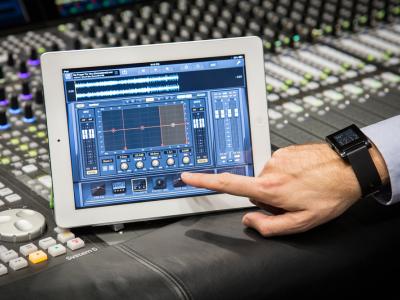What does a Live Playback Engineer do?
The sound you hear at a live show is the product of a lot of expertise and behind-the-scenes work, including that of the live playback engineer, who uses innovative software to improve what the audience experiences.
The extent of the role of the live playback engineer can vary, depending on the artist’s preferences, as well as the musical director’s skill set. In some cases, the playback engineer’s sole job is to play back the music, and in others, it can get more technical, involving music programming and editing.
Often, for larger shows, the musical director will work with the band to work out a vision, then communicate that to the playback engineer, who will take that direction and work with the song stems to create custom versions of the songs and transitions for a show. The playback engineer may also add clicks, cues, and timecodes, send MIDI patch changes, and create sound effects and voiceovers. The playback engineer needs to ensure that all the sounds load and change correctly with the right levels, that the monitoring engineer and front-of-house engineer receive the signals they need, and provide the lighting and video crews with mixes featuring timecode and music.
Depending on whether the playback is situated off- or on-stage, the playback engineers may be more behind-the-scenes or in the mix as a DJ and controllerist.
At a Glance
A musical background is key for a live playback engineer, as well as a firm handle on technology. Knowing how to build, operate, and maintain two systems—a master and backup—is also essential. Live playback engineers may start on a smaller scale, for example, doing vocal effects and autotune live for an artist who also has a DJ, and then progress into more custom work like pitch shifting and delays. When a playback engineer has developed a good working relationship and rapport with an artist, and understands their flow and behaviors during performances, they can take the lead on shifts and changes during a show. Depending on one’s skill set, the role of a playback engineer can swing narrow or wide. If someone is very musical, they may be equipped to do playback and programming, for instance.
The majority of live playback engineers find work associated with particular musicians or bands. Initially, one can sit in on sessions with other playback engineers. A mentor can show an aspiring playback engineer the ropes. In looking for steady gigs, working with emerging artists is a good place to start, helping them transition from DJ settings to professional playback.
- Software expertise, including Ableton Live and Pro Tools
- Audio hardware
- Communication
- Audio editing
- Live performance
- Excellent ears (detail, nuance)
- Advanced understanding of live sound systems
- Mixing boards
- Flexibility
Live playback engineers must possess the often rare combination of being both technical and creative. Personality also matters; every artist brings their own vibe, and it’s important that the playback engineer clicks. Someone who thrives on change is well-suited to this role and the ability to work under pressure and troubleshoot is key, as a lot of pivoting and improvising may be called for while running a show.
Live playback engineers tour with artists, and can expect to work nights and weekends. This involves a lot of time on the road and frequently meeting new people.






